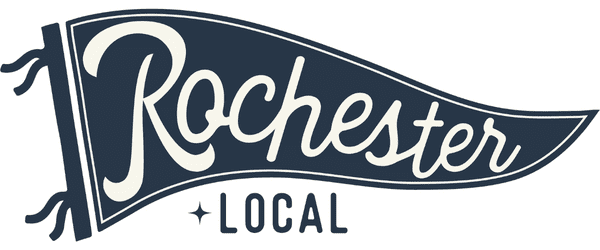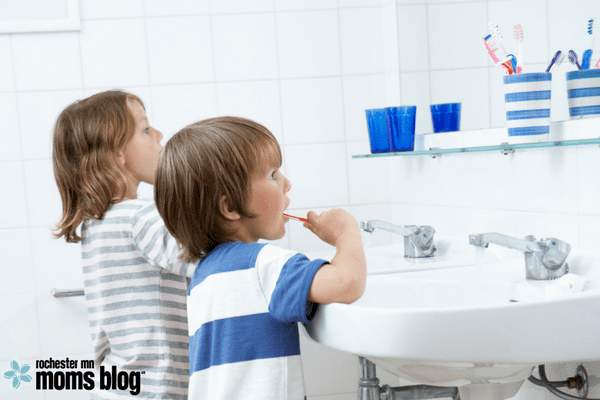This post is sponsored by North Pointe Dental
At North Pointe Dental we are committed to your entire family’s dental health. February is Children’s Dental Health Month and we are taking time to answer some common parent questions regarding their children and oral health.
 When should my child have their first dental appointment?
When should my child have their first dental appointment?
Schedule your child’s first dental appointment within six months of their first tooth erupting or at 1 year of age, whichever is sooner. This appointment will be a time for you to become educated on the individual needs of your child and start a lifelong relationship of good dental care for him/her. At this appointment you should feel free to ask many, many questions! Another important reason to bring your child to the dentist early is so that a positive association with the dental office and dental care providers can be built over the course of your child’s early, formative years. This relationship is the foundation of dental care for life and is critical in making the dental office a fun place instead of a worrisome one!
Do I need to take my child to a pediatric dentist?
General dentists are qualified to treat your child. Whether you choose a pediatric dentist is usually a matter of preference, convenience and cost. A pediatric dentist (pedodontist) is a specialist that only treats children. As a specialist, their fees are usually higher than your general dentist so that may be a consideration for your family. Additionally, when your child turns 18 they will have to find a new dentist.
A general dentist may be convenient for your entire family to receive treatment in one location. Your dentist will discuss with you if they think your child would ever benefit from being seen by a pedodontist.
When will my baby’s teeth come in?
Every child is different! Most people are born with 20 primary teeth which begin to erupt around 6 months of age. By age 3, most children (but not all) will have their complete set of primary teeth.
When will my child lose their teeth?
Again, each person is unique. For most children, around ages 6-8 they begin to shed their primary teeth to make room for 32 permanent, adult teeth.
The American Dental Association offers parents these tooth eruption charts for your reference.
Should my child brush with fluoride toothpaste?
Children that are old enough to consistently spit out toothpaste in the sink (usually beginning around 3 years of age) will benefit from using a toothpaste with fluoride. Fluoride is a mineral that occurs naturally in water. It helps strengthen tooth enamel and prevents cavities.
Children under age 2 should use fluoride-free toothpaste as ingesting too much fluoride can cause dental fluorosis. This condition causes the tooth to discolor or pitting on the teeth.
Help! My child was (insert awesomely fun activity here) and they knocked out their permanent (adult) tooth! What do I do?
After comforting your child, locate the tooth. If the tooth is dirty, rinse it with milk and gently place it back in the socket. In the instance where the tooth cannot be reinserted, place the tooth in a glass of milk or your child’s saliva if they are cooperative. If you can see the root, avoid touching it. Do not wrap the tooth in a napkin or dry the tooth as it lessens the chance it will reattach. Contact your dentist as they will want to see your child as soon as possible.
If it was a baby tooth, tuck it under their pillow for the tooth fairy. Call your dentist so they can check for any trauma and possibly take x-rays to assess unseen areas.
What can I do to prevent cavities?
Cavities can cause your child discomfort, tooth sensitivity, and infection. The good news is that cavities are preventable! To keep your child’s teeth cavity-free:
- Clean your child’s teeth daily. Parents or caregivers should help or supervise over tooth brushing until a child is at least 8 years old.
- Never put your child to bed with a bottle or training cup.
- Avoid sticky, sugary treats and if you do give them, have your child brush their teeth after consuming them. Fruit snacks and raisins are other culprits we might not think of but their sticky residue should be removed to avoid cavities.
- Avoid acidic candies and beverages.
- Take your child to the dentist twice per year for cleanings, checkups and topical fluoride applications.
Dr. Jason Toney is a family and cosmetic dentist in Rochester, MN and father to four (cavity free!) children. Dr. Toney attended dental school at the University of Nebraska and has been serving the Rochester community for over 13 years. If you are looking for a dental home for your family, North Pointe Dental is accepting new patients and welcomes you!


